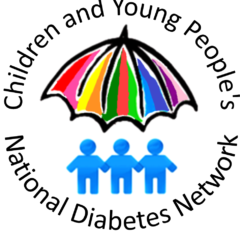Key Documents
Searching for - ""
There are no results for that search term.
-
Case Study: The National Children & Young People’s Diabetes Network
In this case study, we examine how the Network has brought together clinicians and families, and we explore the lessons and opportunities for policymakers, commissioners, administrators and clinicians seeking to harness the power of networks to improve care. We draw on data from a combination of interviews and workshops with Network leaders and members over nine months during 2019 (see Appendix).
631 KB
08/04/2020
-
Diabetes Transition Service Specification - December 2015
465 KB
09/03/2020
-
Executive Summary Management of Type 2 Diabetes in CYP
http://www.a-c-d-c.org/wp-content/uploads/2012/08/Executive-summary-Management-of-Type-2-diabetes-in-CYP.pdf
-
Guidelines for Schools, Colleges and Early Years Settings e-book
28-page guideline for schools, colleges and early years settings. Includes sections on: Roles and responsibilities; Insulin injections and pumps; Blood Glucose Monitoring; PE, Exercise and Diabetes, and much more
3 MB
09/03/2020
-
Supporting pupils with medical conditions: links to other useful resources
_
-
Individual Healthcare Plan (IHCP) for a Child or Young Person (CYP) with Type 1
Link to page for IHCP
-
Individual Healthcare Plan (IHCP) for a Child or Young Person (CYP) with Type 2
4 MB
04/11/2020
-
ISPAD Clinical Practice Consensus Guidelines
ISPAD’s Clinical Practice Consensus Guidelines are the only comprehensive set of clinical recommendations for children, adolescents, and young adults with diabetes worldwide! Authors include experts from across the globe and a chapter on limited care for developing healthcare systems has also been developed.
-
Language Matters - Language and diabetes - NHS England
The language used by healthcare professionals can have a profound impact on how people living with diabetes, and those who care for them, experience their condition and feel about living with it day-to-day. At its best, good use of language; verbal, written and non-verbal (body language) which is more inclusive and values based, can lower anxiety, build confidence, educate and help to improve self-care. Conversely, poor communication can be stigmatising, hurtful and undermining of self-care and have a detrimental effect on clinical outcomes. The language used in the care of those with diabetes has the power to reinforce negative stereotypes, but it also has the power to promote positive stereotypes.
2 MB
27/09/2023
-
National Children and Young People’s Diabetes Network Delivery Plan 2020-25
2 MB
20/05/2020
-
National Curriculum for the training of Health Care Professionals who care for Children and Young People with Diabetes Mellitus
2 MB
09/03/2020
-
National Paediatric Diabetes Service Improvement Delivery Plan 2013-2018
740 KB
09/03/2020
-
2023/25 NHS Payment Scheme Annex C: Guidance on best practice tariffs
995 KB
06/04/2023
-
NICE Guidance - Diabetes (type 1 and type 2) in children and young people: diagnosis and management
This guideline covers the diagnosis and management of type 1 and type 2 diabetes in children and young people aged under 18. The guideline recommends strict targets for blood glucose control to reduce the long-term risks associated with diabetes.
-
Position Statement on Freestyle Libre for Glucose Monitoring
The following guidance represent the consensus of ABCD ,Type 1 Diabetes Clinical Collaborative-UK, ACDC and the National Children and Young People’s Diabetes Network for FreeStyle Libre for glucose monitoring . The guidance has been produced for diabetes teams to use in their discussions with purchasing organisations to ensure the benefit of the technology is realised in as many people as possible, consistently across the NHS. The guidance should be used as an adjunct to Diabetes UK’s Consensus statement on Flash Glucose Monitoring, Abbott’s Formulary Pack and NICE MIB 110.
452 KB
15/07/2020
-
ISPAD Clinical Practice Consensus Guidelines 2018: Sick day management in children and adolescents with diabetes
1 MB
31/03/2020
-
ISPAD Sick day management in type 1 diabetes, challenges in the developed world presentation by Frances Mouat
The 2014 ISPAD Clinical Practice Consensus Guidelines state that children and teenagers whose diabetes is under good metabolic control should not experience more illness or infections than children without diabetes. However illness and stress are commonplace in the paediatric population, and in young people with T1DM the resulting counter regulatory hormone production can cause significant metabolic deterioration. This may lead to hyperglycaemia, ketonaemia and Diabetic Ketoacidosis (DKA). In this interactive session we will reference the guidelines and discuss some of the strategies and new technologies available to help prevent this potentially fatal condition. We will present cases to highlight the use of education and technology in promoting self-monitoring of blood glucose and ketones, thus allowing recognition of the early symptoms of hyperglycaemia and DKA. Approaches to the management of patients using insulin pump therapy will also be discussed and illustrated by case examples.
-
Sick Day Guidelines for Diabetes
558 KB
10/03/2020
-
Sick Day Guidelines for Diabetes Executive Summary
400 KB
10/03/2020
-
Patient Advice for Sick Day Rule
189 KB
10/03/2020
-
Terms of reference for the National Children and Young Peoples Diabetes Network
537 KB
10/03/2020

